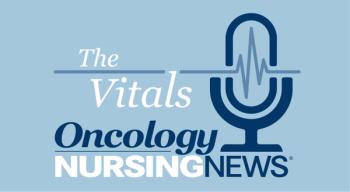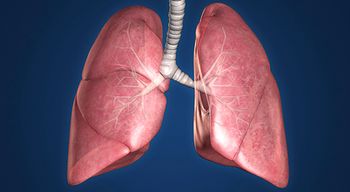
The FDA approved venetoclax plus azacitadine, decitabine, or low-dose cytarabine for the treatment of patients with newly diagnosed acute myeloid leukemia.

The FDA approved venetoclax plus azacitadine, decitabine, or low-dose cytarabine for the treatment of patients with newly diagnosed acute myeloid leukemia.

Oncology nurses are key players in promoting health heart practices after a patient finishes cancer treatment.

The FDA approved pembrolizumab for the treatment of adults with relapsed or refractory classical Hodgkin lymphoma.

While CAR T-cell therapy is causing landmark changes to difficult-to-treat blood cancer populations, most patients have experienced some adverse events in clinical trials.

Although many patients will eventually relapse, the first remission is the deepest, according to one expert.


Nurses need to know which patients are at risk and the tools to use to diagnose cardiac toxicities.

The investigational CAR T-cell product AUTO3 in combination with pembrolizumab was found to have a tolerable safety profile and elicit durable complete responses in patients with relapsed/refractory diffuse large B-cell lymphoma.

The FDA has granted a priority review to a supplemental new drug application (sNDA) for crizotinib (Xalkori) in the treatment of pediatric patients with ALK-positive relapsed/refractory systemic anaplastic large cell lymphoma (ALCL), according to an announcement from Pfizer, Inc.

Patients with mantle cell lymphoma (MCL) who have high-risk biology, including blastoid variant, a Ki-67 score of at least 30%, or high p53 expression, had a significantly shorter failure-free and overall survival (OS), according to results of a retrospective trial.

Nurses should discuss fertility preservation with all eligible patients and provide them with up-to-date information to make their decision.

It is crucial that oncology nurses monitor for cardiac complications in their patients with hematologic malignancies. And when one is discovered, they must act.

Blinatumomab (Blincyto) monotherapy as consolidation therapy prior to allogeneic hematopoietic stem cell transplant (HSCT) resulted a significant improvement in event-free survival (EFS) and a lower risk of recurrence in children with high-risk B-cell precursor (BCP­)–acute lymphoblastic leukemia (ALL).

The orally available belumosudil continues be promising in patients with chronic graft-versus-host disease (cGVHD) who have received 2 or more prior lines of systemic therapy

The FDA has approved CC-486 for the continued treatment of adult patients with acute myeloid leukemia who achieved first complete remission (CR) or CR with incomplete blood count recovery following intensive induction chemotherapy who are not able to complete intensive curative therapy.

To effectively tailor treatment for transplant-ineligible patients with multiple myeloma in the frontline setting, factors such as frailty status must be taken into consideration, according to Smith Giri, MD, MHS.

Investigational CAR T-cell therapy products have demonstrated unprecedented responses rates with seemingly durable remissions in patients with relapsed/refractory multiple myeloma, explained Luciano J. Costa, MD.

The Food and Drug Administration (FDA) provided an update on breast-implant associated side effects that have been reported to the agency, including breast implant-associated anaplastic large cell lymphoma (BI-ALCL) and symptoms that are commonly referred to by patients as breast implant illness (BII).

The FDA has approved daratumumab in combination with carfilzomib and dexamethasone for the treatment of patients with relapsed/refractory multiple myeloma who have received 1 or more prior lines of therapy.

Nurses need to know the potentially life-threatening adverse events of CAR T-cell therapy.

The FDA has approved belantamab mafodotin-blmf (Blenrep) as a treatment for patients with relapsed/refractory multiple myeloma who have received 4 prior therapies, including an immunomodulatory drug, a proteasome inhibitor, and an anti-CD38 antibody.


An Emory University-led phase 2 study will evaluate whether the the PI3K-gamma/delta inhibitor duvelisib is effective at reducing lung inflammation in patients with severe novel coronavirus 2019.

Patients with multiple myeloma who were obese or overweight had a trend toward slightly improved progression-free survival and overall survival outcomes compared to patients who had a normal weight, according to data from an exploratory analysis.

Patients with MDS/MPN unclassifiable, whose genes were found to be the most heterogeneous, had a different molecular landscape that was comparable with those observed within other MDS/MPN.